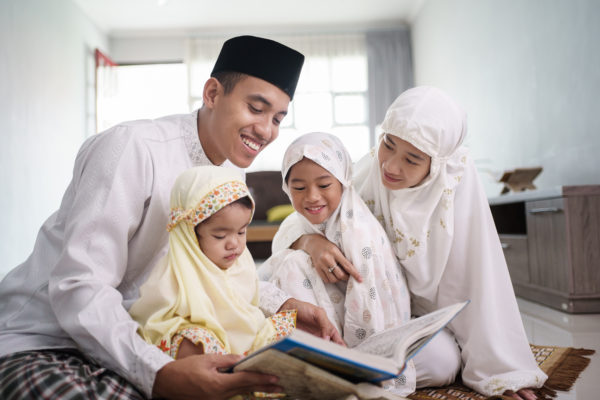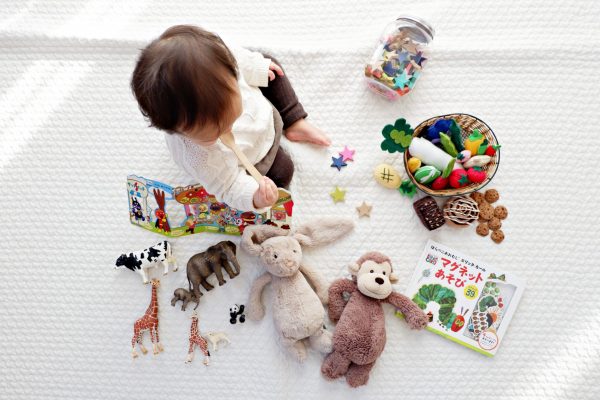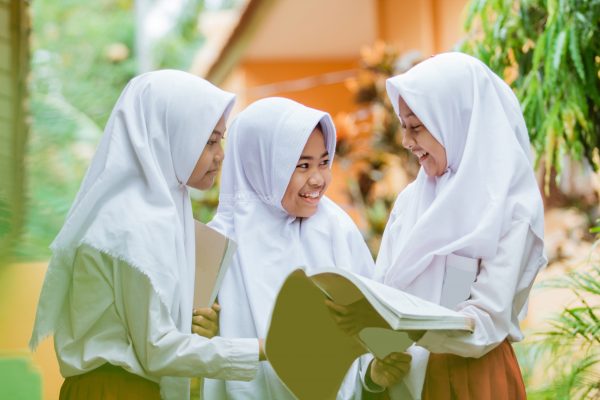Shock, unsteadiness, heartbreak, fear, and frustration have seized many after the horrific, aggressive triple murder of three vibrant, talented, and engaged American-Muslims; Razan Abu-Salha (19), Yusor Abu-Salha (21), and Deah Barakat (23), students of the University of North Carolina – Chapel Hill. Their death, which the media was so adamant at denying as a hate-crime, has effected the Muslim community across America, Europe, and beyond. It has no doubt left many demanding justice, expressing condolences to the family, feeling a desire to carry on their legacy, and desperate to seek ways to deal with this trauma. In particular, Muslim parents need ways to deal with the aftermath of the Chapel Hill murders and increased Islamophobia of the recent past. They are seeking support and advice to navigate this emotional and fearful terrain.
How should parents address these issues, especially for the very youngest of children? In fact, we can look to our Islamic traditions regarding child development to get a gauge on how to approach our children. From our hadith on the stages of child development, we see that it is broken down into 7 year cycles characterized by distinct qualities of consciousness and needs. Therefore, our approach should be in sync with these differences as children are not mini-adults that all need to have a good conversation about their feelings and get the full report on traumatic events.
0-7 years
For the youngest children, 7 and under, it would be ideal to protect them from the information about the trauma and shooting, which means being calm and steadfast yourself, not having the TV news on in front of them, avoiding discussing the news in front of them with other older members of the family and maintaining the normal rhythms and routines of family life. All of these actions and emotional messages from the adults create a sound, safe, and secure environment for the youngest children who, like sponges, soak in the mood around them.
7-14 years
Likewise, the next age group 7-14, also need a sense of security and safety, especially at times of tragedy and trauma. They however, are ready to have more of a conversation that again must reflect their development and age. Allow them some time to ask you, as parents, about what is going on. You don’t need to overwhelm or divulge all the details of the tragedy. Check in with them to see if they are hearing the news from school or from friends, and be open to listening to them and hearing their concerns.
14+ years
The oldest group of children, 14+ and up, are much more mature and emotionally ready to hear the details about trauma and tragedy but tempered by their own initiative. In other words, don’t bombard them with all the details and emotion. This is the age group to really have a dialogue and more detailed conversation. Most importantly, this age group must have an outlet to take action regarding injustice, loss, and pain. Involving them in planning a prayer vigil, doing some type of commemorative art or event, and creating an interfaith dialogue program for example are ideal cathartic events. Even younger children could also do some type of activity, like write a card to the family of the victims or donate money to their charity work in Syria and Palestine as a means to bring closure to loss.
Ultimately, your stability as a parent is vital at every age so the children can feel they have a role model who is sturdy, reliable, and safe who can emit the presence of mind that life is good despite its challenges, and that Allah is just and we rely on Him. Always begin with the mercy and justice of Allah (swt) as the ground from which all our stability in this life arises. Guide your children according to their age towards the surety of faith that Allah is ever-watchful and all final judgments are His.
“We shall set up scales of justice for the day of Judgement, so that not a soul will be dealt with unjustly in the least. And if there be (no more than) the weight of a mustard seed, we will bring it (to account): and enough are we to take account.” [Al-Qur’an 21:47].
“The neighbourhoods develop and last longer because of good relations maintained by the neighbours there.” – Al Waafi, Vol 3, p. 96.
“A momin is one through whom the lives and properties of others will be protected. A Muslim is one, from whose hands and mouth other Muslims are safe…” – Al Waafi, Vol 14, p. 48.





